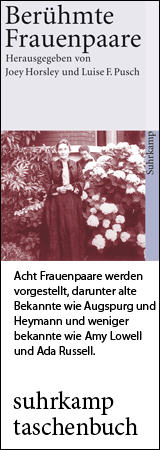
wikimedia.org
born on July 2, 1873 in Saint-Mandé near Paris
died on March 24, 1968 in Washington, D.C.
French filmmaker, screenwriter and director
150th birthday on July 2, 2023
Biography • Literature & Sources
Biography
In 1895 Louis Lumière presented the cinématographe he had just developed to a stunned audience in Paris that was fascinated by his shots of locomotives approaching and troops parading. Alice Guy was 22 years old at the time and working as a secretary for Léon Gaumont at the Comptoir général de la photographie, where she witnessed firsthand the testing of the various new motion picture devices. She believed that this new medium could be used to do something more than document horses at racetracks and princes during state visits: It could be used to tell stories. She therefore wrote a script and shot the first feature film in film history, using hand-painted decorations and amateur actors from her circle of acquaintances.
During the following eleven years as the Gaumant film studio’s head of production she directed and filmed hundreds of slapstick comedies (I Have a June bug in My Pants) as well as cultural films from a trip to Spain. She captured dance and opera scenes (with parallel sound recordings), bullfights in the Camargue, gypsy camps, and Parisian slums on film. Film tricks such as slow motion, fast motion, and dissolves were among those she experimented with.
For her greatest undertaking, The Life of Christ (1906), she had 25 permanent structures built and used 300 extras in an enormous effort. In 1907 - already 34 years old - she married the cameraman Herbert Blaché and abandoned her highly successful career in Paris. Together with Blaché she went to the United States on behalf of the Gaumont studio, but she found it extremely difficult to settle in due to her insufficient language skills. Together they founded their own film company, Solax Studios.
Guy filmed cowboy movies, military scenes, literary adaptations (Poe, Balzac) and a successful movie about trafficking of young women (The Lure). She gave birth to two children. But her husband “fell passionately in love with his leading lady,” ran up debts and eventually went bankrupt, forcing him to sell their joint film company in 1920. Divorce followed in 1922; Alice Guy, “completely discouraged” and largely penniless, returned to France with her children. For years she tried to regain a foothold in the film business (she lacked start-up capital), and scratched out a living by writing short stories, fairy tales and film reviews.
After her daughter joined the U.S. Foreign Service in 1940, Guy accompanied her around the world to various diplomatic missions. She suffered a stroke at 90, and returned with her daughter to the U.S., where she died four years later, near her children, in a sanitarium.
Alice Guy made some 500 films and is considered the inventor of the feature film; nevertheless, for a long period of time her name was no more than a side note in film histories, her works were attributed to male colleagues, and she was unable to find a publisher for her autobiography of a female film pioneer before she died in 1968. It was not until 1974 that the Paris Women's Film Festival showed some of her films; in 1976 the festival organizers published her memoirs.
(Text from 1997; Translated with DeepL.com, edited by Ramona Fararo)
For additional information please consult the German version.
Author: Andrea Schweers
Literature & Sources
Blaché, Roberta und Simone & Anthony Slide. 1986. The Memoirs of Alice Guy Blaché. Metuchen, NJ; London. The Scarecrow Press.
Guy, Alice. 1981 [1976]. Autobiographie einer Filmpionierin 1873-1968 [=Autobiographie d'une pionnière du cinéma]. Aus d. Frz. von Helma Schleif und Dagmar Hahn. Vorwort von Nicole–Lise Bernheim und Claire Clouzot. Münster. tende.
Lyon, Christopher & Susan Doll. Hg. 1986. The International Dictionary of Films and Filmmakers. Bd. 2: Directors / Filmmakers. London. St. James Press.
Raganelli, Katja. 1996. Alice Guy–Blaché (1873-1968): Hommage an die erste Filmemacherin der Welt. TV–Film. Produktion von Diorama Film GmbH im Auftrag des ZDF, in Zusammenarb. mit arte.
Slide, Anthony. 1977. Early Women Directors. South Brunswick; New York. A.S. Barnes & Co.
Werner, Paul & Uta van Steen. 1986. Rebellin in Hollywood: 13 Porträts des Eigensinns. Frankfurt/M.; Dülmen. tende.
If you hold the rights to one or more of the images on this page and object to its/their appearance here, please contact Fembio.



